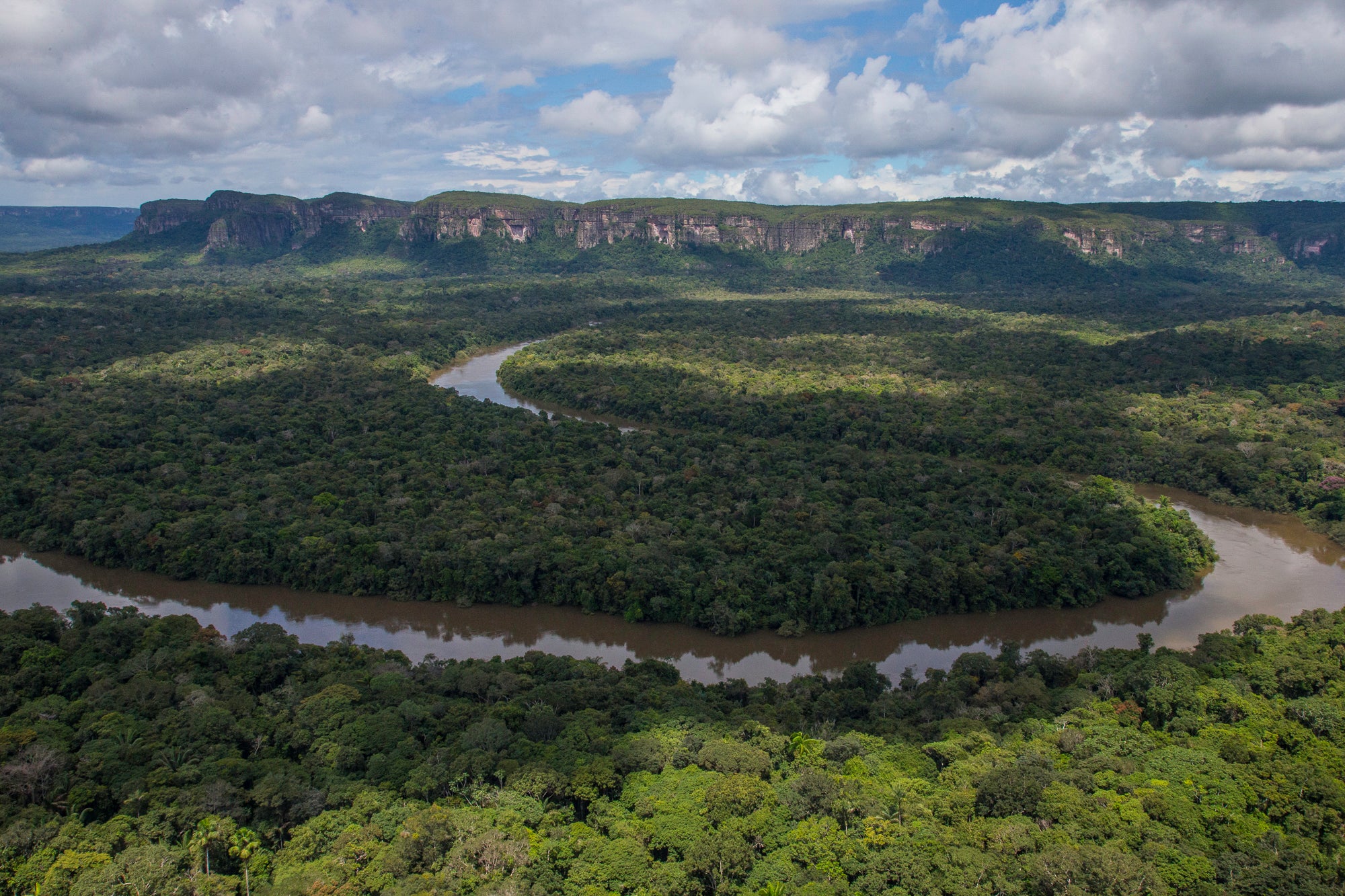Colombia’s Amazon rainforest ‘has lost area size of Wales despite £250m from UK to limit deforestation’
Farmers said that the UK-funded ‘incentive’ has not been enough to stop deforestation

Your support helps us to tell the story
From reproductive rights to climate change to Big Tech, The Independent is on the ground when the story is developing. Whether it's investigating the financials of Elon Musk's pro-Trump PAC or producing our latest documentary, 'The A Word', which shines a light on the American women fighting for reproductive rights, we know how important it is to parse out the facts from the messaging.
At such a critical moment in US history, we need reporters on the ground. Your donation allows us to keep sending journalists to speak to both sides of the story.
The Independent is trusted by Americans across the entire political spectrum. And unlike many other quality news outlets, we choose not to lock Americans out of our reporting and analysis with paywalls. We believe quality journalism should be available to everyone, paid for by those who can afford it.
Your support makes all the difference.An area “larger than Wales” has been lost from the Amazon rainforest in Colombia to growing levels of cattle farming, it has been reported.
Britain has sent almost £250 million – at a time of the government making cuts to the international aid budget – to fund projects aimed at preventing deforestation in Colombia by providing local people with a financial alternative to cattle farming.
The money was given to the Colombian government’s “Vision Amazonia” programme, that was launched in 2016, which is currently supported by Britain, Germany and Norway.
The scheme aimed to stop deforestation by incentivising communities in the rainforest to use the Amazon’s resources more sustainably.
But some members of the indigenous Tucano community in Chiribiquete – the world’s largest tropical national park, in Colombia – have said huge areas of the rainforest are still being chopped down and burned to make way for cattle ranches, according to a Channel 4 News investigation.
Fernando, a farmer, told the channel that the subsidy from the British government was not enough to stop farmers from keeping cattle.
Another farmer told Channel 4 that authorities turn a blind eye to illegal deforestation by big cattle farming companies.
Colombia’s Supreme Court of Justice in 2018 ordered that the rainforest be protected, but deforestation still continues.
The US’s Environmental Investigation Agency shows that the cattle population in the area has grown three-fold since 2016.
An increase in deforestation activity coincides with a peace deal struck between the Colombian government and the Revolutionary Armed Forces of Colombia (FARC), according to sustainability website Chain Reaction Research.
When approached by Channel 4 News, Colombia’s Minister for Environment Carlos Eduardo Correa said: “We are making very significant efforts with our resources ... There are areas where we have to make greater efforts. We are making them.”
Earlier this week, ahead of the Cop26 climate summit, Colombia’s President Ivan Duque and his Brazilian counterpart Jair Bolsonaro pledged to work together to protect the Amazon from deforestation.
Channel 4 said its investigation aired on Thursday night “raises questions about whether international efforts are working” to save the Amazon.
World leaders are preparing to gather in Glasgow for the Cop26 conference on 31 October, where it is expected that the destruction of the rainforest will be discussed.
Although it has been known as the “lungs of the Earth” and a major carbon sink, scientists confirmed in July for the first time that the Amazon is emitting more CO2 than it absorbs – mainly due to deforestation fires.




Join our commenting forum
Join thought-provoking conversations, follow other Independent readers and see their replies
Comments